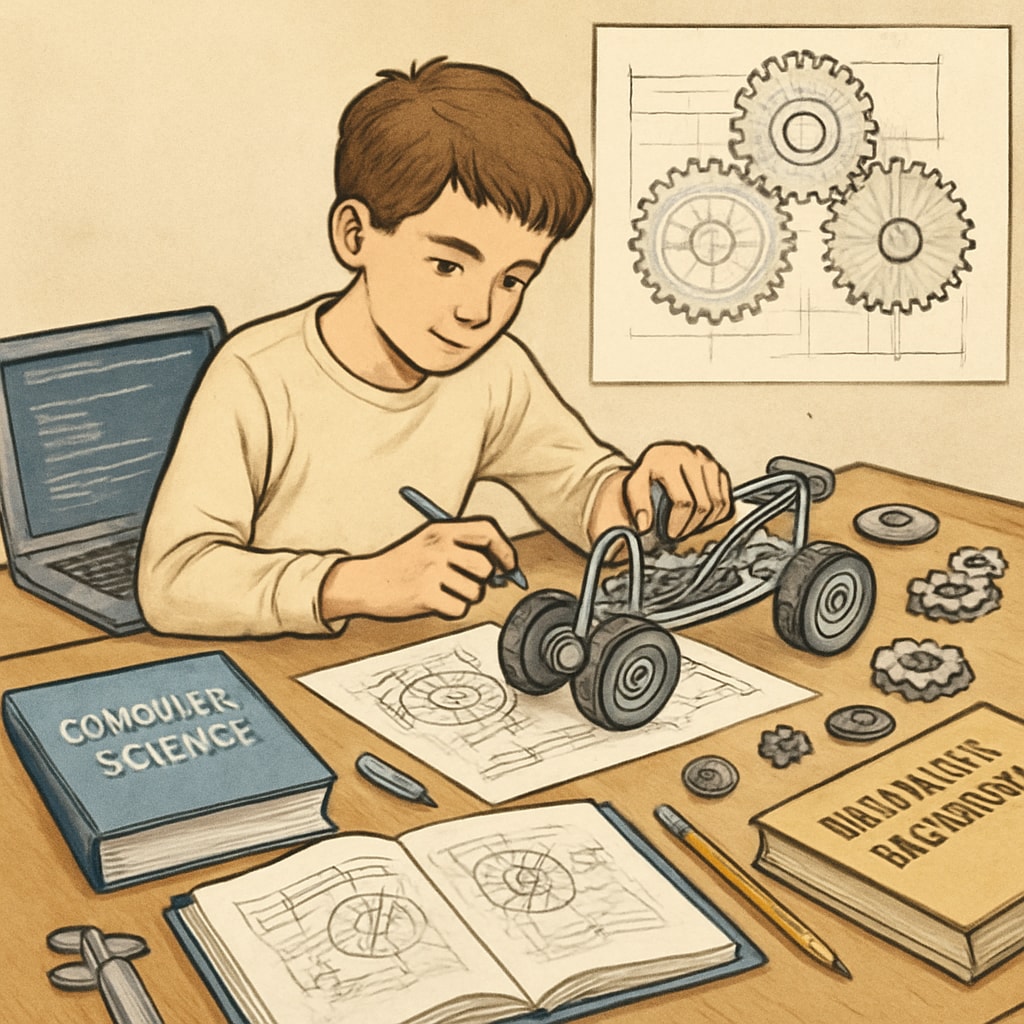Today’s competitive job market places increasing pressure on students to specialize early, often leading them to pursue dual degrees or certifications. For instance, fields like mechanical engineering frequently require students to gain extra qualifications such as online degrees or professional certifications. But should K12 students start planning multidisciplinary paths as early as high school? This article evaluates the value of early career planning, particularly in STEM fields, and offers strategies to ensure balanced development.
The Appeal of Multidisciplinary Education
Multidisciplinary education, including dual degrees, has become a popular choice for students looking to improve their competitiveness in the workplace. For example, a student pursuing mechanical engineering might also opt for a degree in computer science or business to diversify their skill set. Such combinations can open doors to careers in robotics, management, or data analysis.
However, the concept of encouraging K12 students to plan such paths early is controversial. On one hand, early planning can provide clear goals and help students focus on relevant skills. On the other hand, it may limit exploration and creativity during formative years.

Challenges of Specializing Early
While early planning can be beneficial, it comes with significant drawbacks that educators and parents must consider. Some challenges include:
- Loss of flexibility: Early specialization may prevent students from exploring diverse interests and discovering new passions.
- Increased stress: Balancing multiple academic commitments can overwhelm students, especially during K12 years.
- Narrow focus: Premature career planning risks locking students into paths that may not align with their evolving interests or market trends.
For example, a student who initially plans to pursue mechanical engineering and business may realize later that their true passion lies in biology or arts. Over-specialization can hinder their ability to pivot to new opportunities.
Balanced Strategies for K12 Students
To address these challenges, educators and parents should encourage balanced growth rather than rigid specialization. Here are some strategies:
- Exploration first: Allow students to explore a wide range of subjects before narrowing down their focus. For instance, elective courses in high school can introduce them to STEM, arts, and humanities.
- Skill development: Focus on foundational skills, such as critical thinking, communication, and problem-solving, which are valuable across all disciplines.
- Gradual specialization: Encourage students to identify their strengths and interests through internships, extracurricular activities, or mentorship programs before committing to dual degrees.

The Role of Online Degrees and Certifications
In recent years, online degrees and certifications have emerged as accessible tools for students to pursue multidisciplinary education. Platforms like Coursera and edX offer courses in mechanical engineering, coding, and business, allowing students to explore multiple fields without overloading their schedules. These resources are particularly valuable for K12 students seeking to enhance their skills while maintaining flexibility.
For example, a high school student interested in robotics might take an online course in programming to supplement their hands-on engineering projects. This combination can help them build a competitive profile without prematurely committing to a dual degree.
External Resources: Learn more about mechanical engineering on Wikipedia or explore education strategies on Britannica.
Conclusion: Striking the Right Balance
While multidisciplinary education offers undeniable benefits, pushing K12 students toward early specialization may do more harm than good. Instead, fostering an environment that encourages exploration, foundational skill-building, and gradual specialization can help students make informed decisions about their future. Online degrees and certifications serve as excellent tools for testing interests while maintaining flexibility. Ultimately, balanced development during K12 years lays the groundwork for lifelong learning and career success.
As a result, parents, educators, and policymakers must carefully evaluate the pressures placed on students and prioritize holistic growth over premature planning. This approach ensures that students can adapt to evolving interests and market demands, setting them up for a fulfilling and resilient career.


